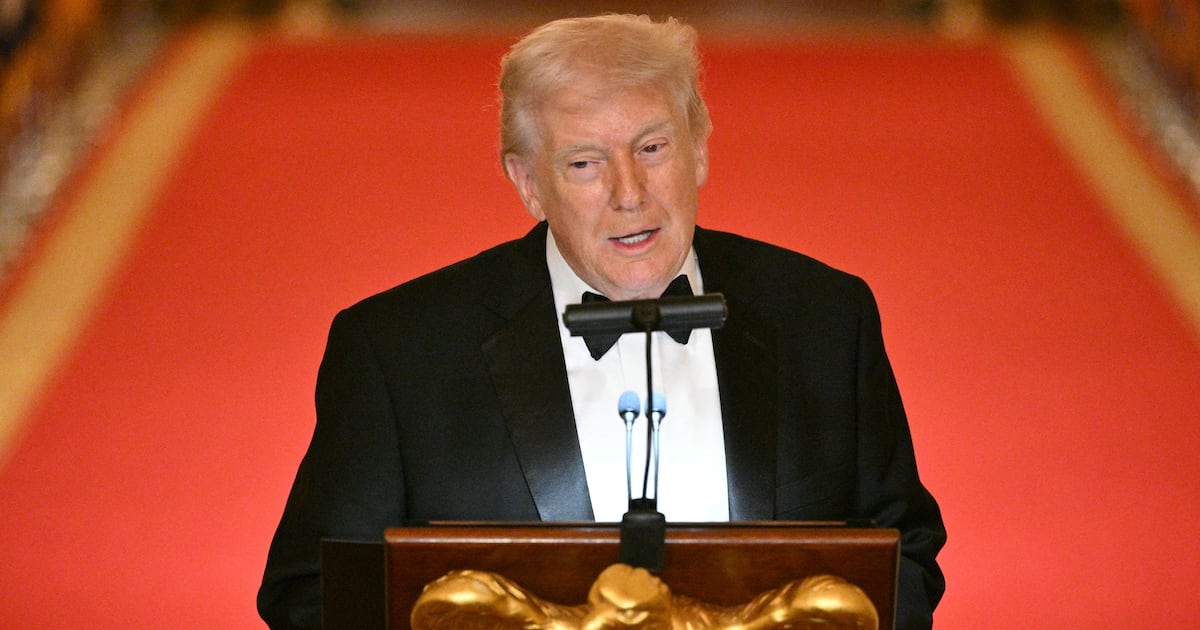The Trump administration’s immigration policy appears to be on a collision course with the Due Process Clause of the Fourteenth Amendment, which was certified 150 years ago today. In the latest episodes of “zero tolerance,” it was just revealed that 700 families have not been reunited despite a court-ordered deadline, while nearly 500 parents have already been summarily deported without their children. While such heartless treatment shocks the conscience, it is the sadly predictable outcome of a strategy that favors administrative expedience over humane values. President Trump himself tweeted that border crossers should be sent back “without judges or court cases,” which recalls a shameful period in our history when a different group of desperate refugees was similarly subjected to immediate removal, with no semblance of due process, under a policy of “zero tolerance.”
Our first wave of illegal crossers comprised asylum seekers from slavery—styled “fugitives from labour” in the bloodless language of the Constitution. Many of them were indeed runaway slaves, but others had valid claims to freedom, including a shocking number of people who had been kidnapped and forced into servitude against even the laws of the slave states. Responding to this horrifying reality, most northern jurisdictions enacted “personal liberty laws” that provided due process protections for people claimed as fugitives. Slaveholders howled in outrage, declaring, just as President Trump has, that it was imperative to immediately “bring them back from where they came.” Eventually the issue came before the Supreme Court of the United States.
The case was Prigg v. Pennsylvania, decided in 1842. Justice Joseph Story, a New Englander who was nominally opposed to slavery, wrote the opinion of the Court, holding that state liberty laws must give way to the plenary power of the federal government. But his opinion went further, declaring that slaveholders had the right simply to apprehend alleged fugitives, without legal process, and to carry them back to slavery. In chilling language, the Court affirmed a master’s right “to seize and recapture his slave, whenever he can do it,” without the intervention of the courts.
The results of this ruling were foreseeable and tragic. Slave hunters ranged across the northern states, virtually kidnapping African Americans without regard to legal formalities. Deprived of recourse to “judges or court cases,” free blacks—whether seized mistakenly or intentionally—had no opportunity to assert their lawful status.
Eight years later, Congress codified the principles of Prigg v. Pennsylvania in the Fugitive Slave Act of 1850. The Act continued slave owners’ right of self-help “recaption,” while alternatively empowering a class of part-time federal commissioners (not judges) to summarily return alleged fugitives to slavery. The Fugitive Slave Act abrogated essential due process provisions such as trial by jury, habeas corpus, or appeal, and even the right to speak in one’s own defense, so that the rendition of captured blacks could be effected as quickly as possible. Once again, free blacks were ensnared as easily as actual fugitives, with no good way of asserting their rights.
There were many protests in the North, objecting to the deprivation of due process, but the heroes of the old republic—including Daniel Webster and Henry Clay—set their teeth and lectured the public on solemn duty to follow the law. Just as Attorney General Jeff Sessions defended the family separation policy by invoking the Apostle Paul’s admonition to obey the government, they justified slavery with the biblical verse that the existing authorities “have been established by God.”
Prigg v. Pennsylvania is rightly considered a disgraceful case today, an example of what can happen when the Supreme Court disregards basic human rights. Prigg’s endorsement of slavery was reversed by the Thirteenth Amendment, but the case was also a precursor to the still-viable “plenary power doctrine” that makes immigration an incident of national sovereignty, to be exercised wholly by the political branches of government. This broad doctrine underlies our contemporary immigration mess, where undocumented workers, Dreamers, asylum seekers, and a welter of others cross (and have been crossing) our border for decades. A few are no doubt criminals, but the vast majority are not, and many have legitimate rights that must be taken seriously.
It is precisely here that we ought to heed our history. Neither constitutional principle nor structure compelled Justice Story’s sweeping opinion in Prigg v. Pennsylvania or Congress’s nullification of due process in the Fugitive Slave Act of 1850. These were choices made by men in power to appease clamoring slaveholders by sacrificing the most vulnerable in their midst. The consequence was not only rigorous enforcement of a law, unjust as it was, but also the removal of all protection from those who were wrongly entrapped. Without due process, there was—and is—no meaningful way to separate truth from falsehood or guesswork from facts.
One-hundred-and-fifty years after the ratification of the Fourteenth Amendment, which guarantees due process to every “person” in the United States, we face another choice. Should our federal government craft a regime that honors our nation’s constitutional commitment to due process, to legal rights, and to justice? Or should we sacrifice the undocumented to political policies of “zero tolerance”? President Trump has already displayed a profound ignorance of constitutional law with his suggestion that due process simply be thrown out the window, and the attorney general seems willing to fall in line. With the Supreme Court about to swing sharply to the right, it will be up to the American people to decide if we will today reenact the legacy of slaveholders, or instead recommit our nation to the spirit of the Fourteenth Amendment.






